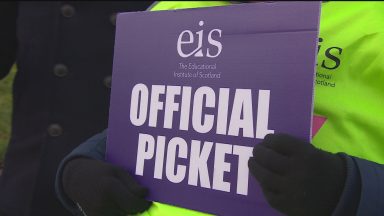Traffic lights could become obsolete in 20 years, an engineer supporting a groundbreaking self-driving cars trial has said.
Thomas Tompkin of Smart Mobility Living Lab (SMLL) said “a seismic shift in the way our roads are laid out” is possible.
Two self-driving electric cars built by Japanese manufacturer Nissan have completed hundreds of laps around a 2.7-mile route featuring busy A roads in Woolwich, London, during the past two years.
This is part of the ServCity project to identify and overcome barriers to deploying autonomous vehicles in cities, which ends next month.
It is believed to be the UK’s first trial of driverless technology involving the use of roadside infrastructure as well as the vehicles’ own systems.
Around 270 cameras installed on the route by the SMLL relay information to the Nissan Leaf cars about potential issues ahead, such as buses stopped in the left lane.
This enables the cars to change lanes well before encountering obstructions, creating a smoother flow of traffic.
Mr Tompkin, head of network, infrastructure and operations at SMLL, estimated that the high-specification roadside systems cost “around one million pounds per kilometre”, but claimed a wider rollout involving more basic technology could be done for a fraction of the price.
“That starts to become a bit more of a compelling business case,” he said.
“If we think about maybe 20 or 30 years, can you start to then think about the infrastructure outside?
“Can you start to remove some of that infrastructure such as traffic signals?
“Obviously, there’s a lot of work to be done before that ever takes place. But that’s where you can start to see a seismic shift in the way our roads are laid out.”
Mr Tompkin said he hopes the UK will have “moved on a lot” towards “completely driverless cars” in public use by the end of the decade.
The UK Government has previously expressed its commitment to introducing legislation that will enable the use of self-driving vehicles.
ServCity’s cars have a qualified driver behind the wheel who can take control when needed.
A driver intervened on at least two occasions during media demonstrations earlier this week, to avoid a possible collision with a bus and to miss a chunk of road surface dislodged from a pothole.
The cars have covered more than 1,600 miles during testing, with no accidents, according to the project’s leaders.
ServCity is a £10.7m consortium project involving Nissan, Hitachi, Connected Places Catapult, the University of Nottingham, TRL (formerly Transport Research Laboratory) and SBD Automotive.
Follow STV News on WhatsApp
Scan the QR code on your mobile device for all the latest news from around the country


 iStock
iStock


























